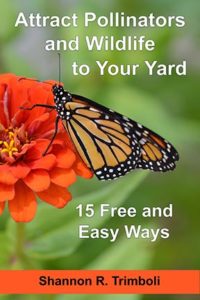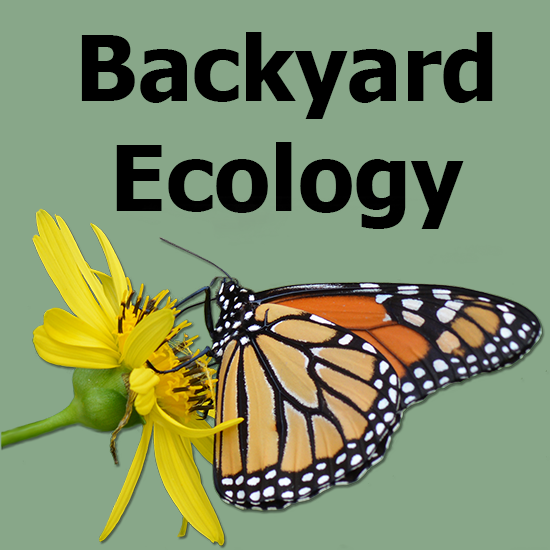
Listen to this Episode:
- From this webpage:
- Find the media player located under the episode picture.
- Click on the green triangle to listen to the audio for this episode.
- From your favorite podcast listening platform:
- Search for “Backyard Ecology.”
Show notes:
Bats are often associated with Halloween and relegated to roles in scary movies, but they are so much more. Bats are very diverse and fascinating creatures that play an invaluable role in our ecosystem. I love the fact that more people seem to be recognizing this and wanting to do things like put up bat houses and make their yards more bat friendly.
In this episode, I talk with Reed Crawford. Reed is a PhD student in Ecology, Evolution, and Conservation Biology at the University of Illinois at Urbana-Champaign. He is studying bats and how they thermoregulate. His research has lots of implications for how we can make our bat houses safer for and more attractive to bats.
Reed and I start out talking about some of the common myths we hear about bats and the many threats that bats face. We then move on to discuss how bats need roosting spots with different conditions depending on factors like the time of year and the reproductive stage of the bat. The temperature of the site throughout the day and night is one of those important conditions, especially for moms and their young (pups).
Unfortunately, sometimes our bat houses can provide nice, warm, attractive conditions for mother bats to raise their young, but on our really warm summer days can get too hot and potentially kill the bats. Part of Reed’s research is looking at different modifications we can make to bat houses to make them safer for the bats. We talk about many of those modifications including a different style of bat house called a rocket box, that doesn’t look like the flat boxes that are commonly sold as bat houses.
In addition to Reed’s research, we talked about suggestions for putting up a bat house and improving the bat habitat around our homes. One of the questions Reed and I both commonly get in regards to bat houses, is “Why aren’t bats using the bat house that I put up?” Unfortunately, there isn’t a simple answer to that question. It often depends on a number of different factors. But, hopefully Reed’s research and those of others pursuing similar questions, will help us give more solid answers to that question in the future.
Links
- Reed’s email: reeddc2@illinois.edu
- Websites Reed Recommends:
- Tips for making bat boxes safer for bats – https://wildlife.nres.illinois.edu/tips-for-making-bat-boxes-safer-for-bats/
- Human-Wildlife Interactions Lab – https://wildlife.nres.illinois.edu/
- Center for Bat Research, Outreach, and Conservation – https://www.indstate.edu/cas/isubatcenter
- Bat Conservation International – https://www.batcon.org/
- Research Papers Reed Recommends:
- Avoiding a conservation pitfall: Considering the risks of unsuitably hot bat boxes – https://conbio.onlinelibrary.wiley.com/doi/10.1111/csp2.412
- In artificial roost comparison, bats show preference for rocket box style – https://journals.plos.org/plosone/article?id=10.1371/journal.pone.0205701
- Surface reflectance drives nest box temperature profiles and thermal suitability for target wildlife – https://journals.plos.org/plosone/article?id=10.1371/journal.pone.0176951
- Backyard Ecology’s website – https://backyardecology.net
- Backyard Ecology blog – https://www.backyardecology.net/blog/
- Backyard Ecology’s Patreon page – https://www.patreon.com/backyardecology
- Subscribe to Backyard Ecology emails – https://www.backyardecology.net/subscribe/
- My email: shannon@backyardecology.net
Episode image:
- Big brown bats (Eptesicus fuscus)
- Photo credit: USGS, public domain

Do you want to make your yard more pollinator and wildlife friendly, but aren’t sure where to start?
Check out my book, Attract Pollinators and Wildlife to Your Yard: 15 Free and Easy Ways, for some easy, quick wins to get you started.

Backyard Ecology: Exploring Nature in Your Backyard
Nature isn’t just “out there.” It’s all around us, including right outside our doors. Hi, my name is Shannon Trimboli, and I am the host of Backyard Ecology. I live in southcentral Kentucky and am a wildlife biologist, educator, author, beekeeper, and owner of a nursery specializing in plants for pollinators and wildlife conservation. I invite you to join me as we ignite our curiosity and natural wonder, explore our yards and communities, and improve our local pollinator and wildlife habitat. Learn more or subscribe to my email list at www.backyardecology.net.

Leave a Reply